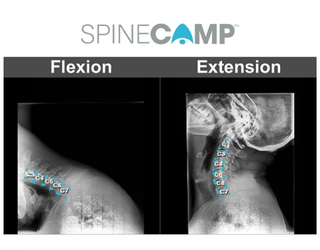You went through the scans. You followed up with your doctor. Maybe you were told your MRI looked fine — no major disc bulges, no pinched nerves, nothing that explained the pain. And yet, weeks or months later, you’re still dealing with headaches, neck tension, brain fog, or low back pain that won’t go away.
You’re not imagining it. You’re not overreacting. And you’re definitely not alone.
Most people don’t realize that MRIs don’t show everything — especially when it comes to the spine. MRIs are excellent at detecting disc herniations, tumors, or fractures. But there’s one thing they’re not designed to catch: instability caused by spinal ligament injury.
When the ligaments in your neck or back are damaged — often from a car accident or whiplash-type injury — they can no longer hold the vertebrae in their correct alignment during movement. This means your spine may look normal when you’re lying still during an MRI, but move abnormally under stress — and that movement is what causes nerve irritation, inflammation, and pain.
So why doesn’t the average provider catch it? Because the test they’re using doesn’t look for motion.
At our office, we specialize in motion-based testing. We use stress X-rays combined with advanced digital measurement (CRMA®) to determine whether your spine is shifting more than it should during bending or movement. It’s this type of testing that finally reveals what so many other scans miss — and why patients come to us after months or even years of frustration.
If your MRI came back normal but your pain is still real, don’t give up. You may be living with an injury that just hasn’t been tested the right way. And once we find it, we can start addressing it — with the right care plan, backed by objective evidence.
Because the problem isn’t in your head. It’s in your spine. And we know how to find it.
Still in pain after a “normal” MRI? You’re not the only one — and you’re not out of options.
We specialize in motion-based spinal testing that reveals what other scans miss. If your pain still hasn’t been explained, we’re here to help.
This post is Part 3 of our 5-part series on spinal injuries that are often overlooked.
Click here to read the full series »
📍 Idaho Falls | (208) 552-9886
Call today to schedule your stress imaging consult.



